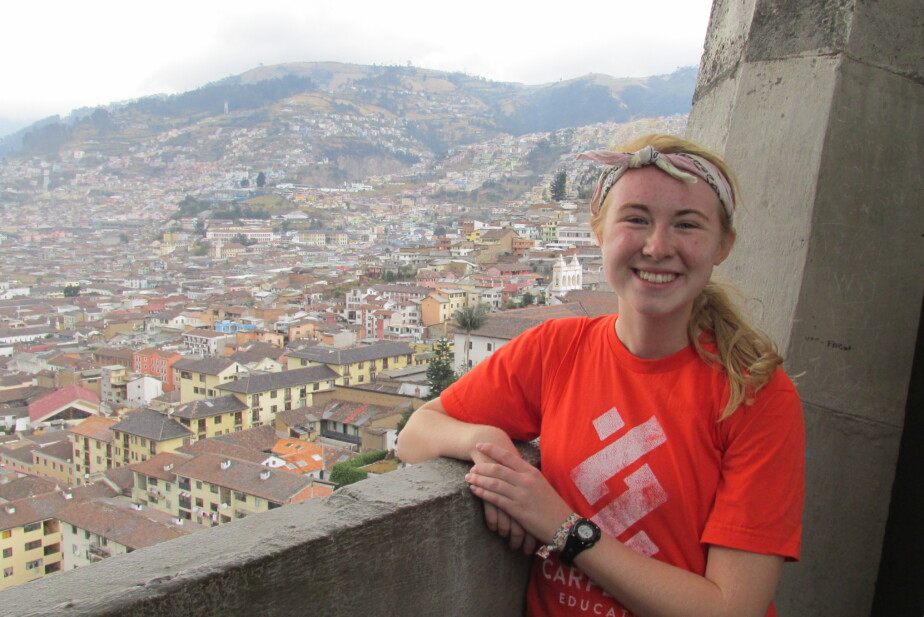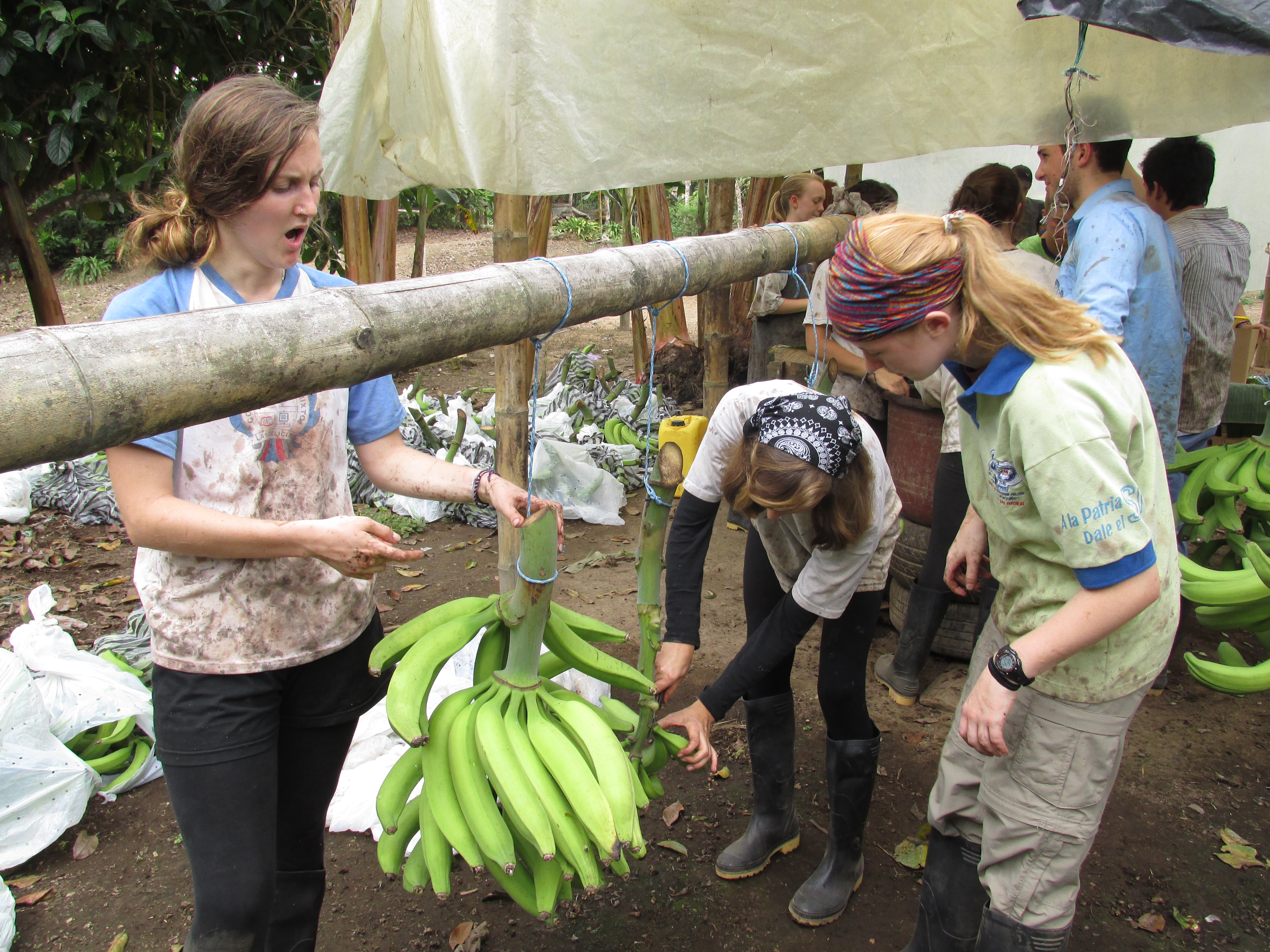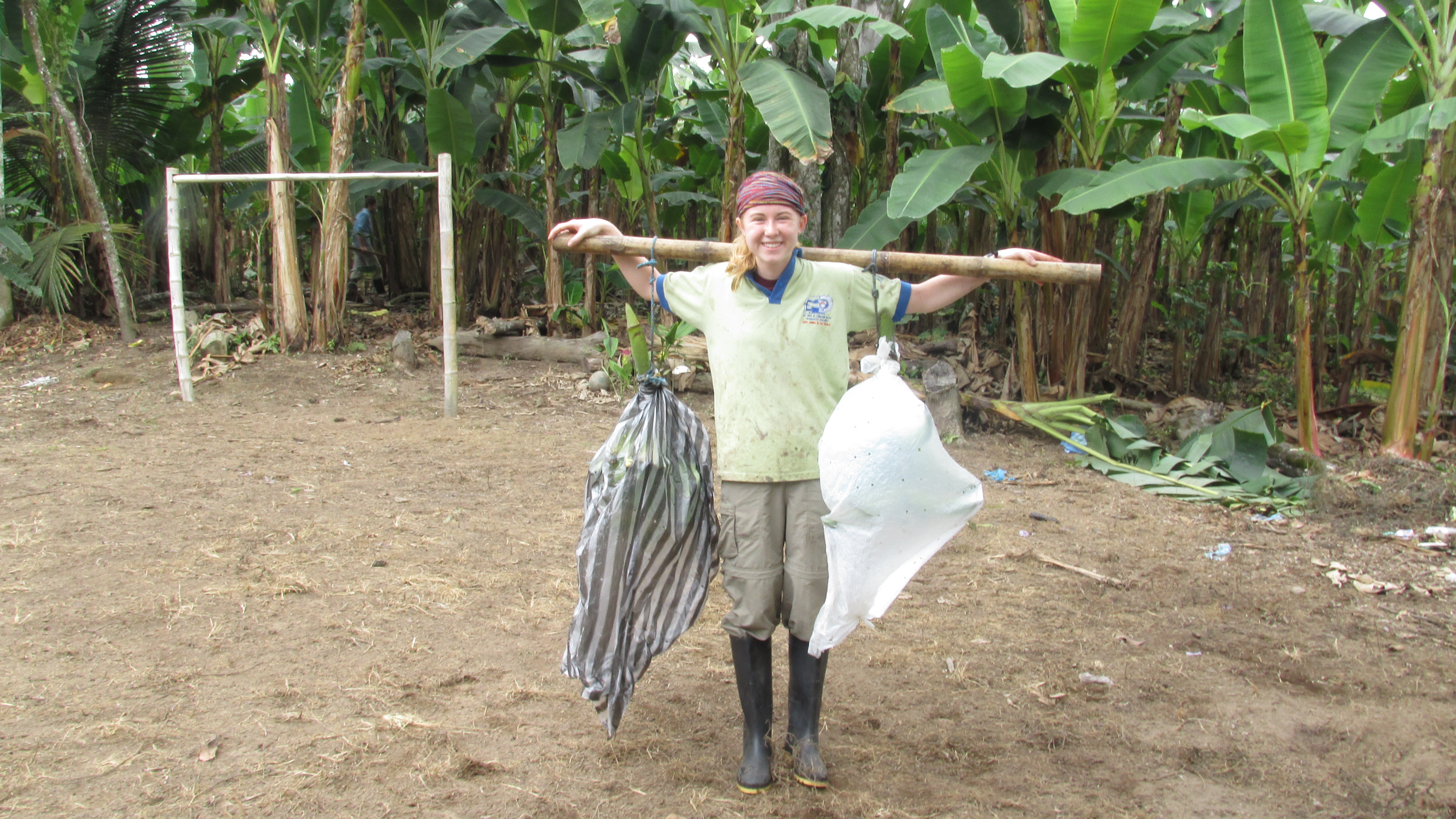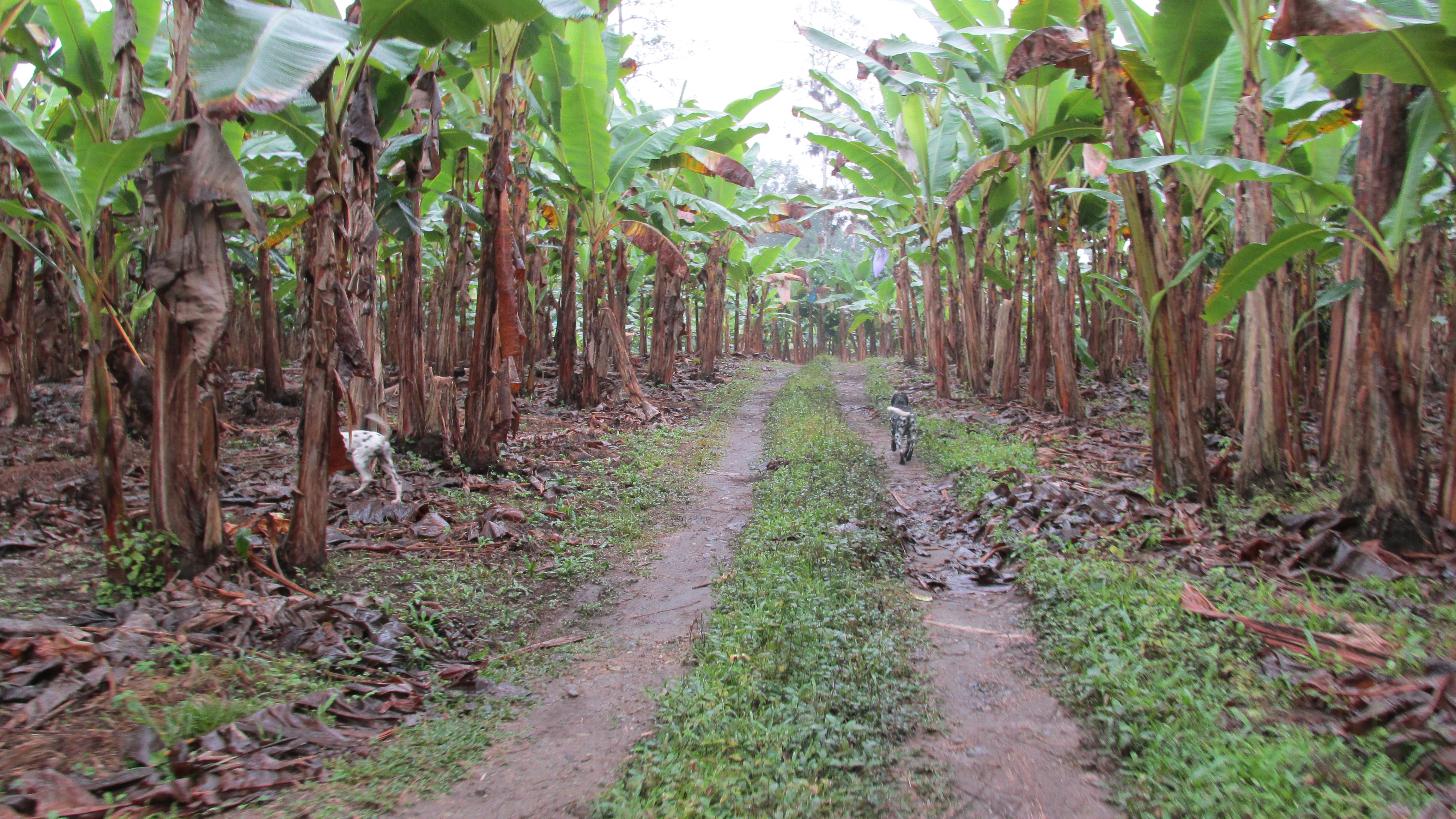
by Keely Kriho
“Buenas grazie!” This phrase accurately describes my experience learning Spanish thus far, i.e. using a little bit of Spanish, a little bit of Italian, and a lot of enthusiasm. Learning Spanish has presented its fair share of difficulties, especially because I’ve had four-hour lessons every day for the past two weeks, but I truly enjoy the challenge of a beautiful new language in this new, unique environment. Because guess what? I’m in Ecuador!
Finally, after months of planning and preparation and proposal-writing and packing (and using alliteration as a coping mechanism for all of the above), I said a tearful good-bye to my family at the airport and flew to Los Angeles to meet my new Carpe Diem family, with whom I´d be spending the next three months traveling, living, and volunteering at various projects and NGOs in various cities in Ecuador and Peru.
I´m from the midwest, so any change in elevation or any geography other than plains is very new and very exciting. Therefore, when our plane arrived at the airport in Quito, Ecuador–at 9,000 feet above sea level, surrounded by mountains dotted with colorful homes and churches visible even from a bus–I took deep breath (anticipation, but also elevation) and got ready to begin my adventures in South America.
After a four-day orientation in Quito, during which the eleven other students and I got to know each other and learned about traveling, established group expectations, and went on runs through the beautiful central park where everyone seems to hang out (so different from the States), we traveled to Las Delicias banana farm on the Ecuadorian coast. The farm is a four hour bus ride from Quito, and the road descends through the stunning mountains of the Andes: diverse plant life, waterfalls, steep valleys, and, occasionally, snow-tipped mountains. In short, a whole new, miraculous world to someone who´s lived in the Great Plains for eighteen years.
At the bus station, we met Juan Carlos and Cheri, the married owners of the farm, and Juan Carlos’s sister Lorena and her husband Marcelo, plus all of their kids! They drove us to the farm, fifteen minutes off the main road down a precarious dirt path, completely surrounded by banana trees. It was a shock to come from an urban city center to a farm with bananas twenty minutes in every direction, but it was a wonderful shock.

Life on the farm is simple, yet it´s a bit of a romanticized concept in that it´s a very difficult lifestyle: each meal has to be meticulously prepared with food mostly grown on the farm, hot water is obsolete, my friend Laura and I spent three hours hand washing our laundry one day, the location of the farm required many minutes of transport if you needed anything you couldn´t grow yourself, not to mention the actual work necessary to cultivate and prepare the bananas for transport, which is time-consuming and labor-intensive.

We got to experience a full day of banana labor on Wednesday, the day that the bananas are cut from the trees. The entire family pitched in on this day, during which it was necessary to cut the bunches of bananas from the trees, carry them to the cutting stations, tie them with string to wooden posts so that we could easily cut off the small bunches, then dip them in a chemical that helped to dry them out a bit and package them. The work was hard and tedious, and it´s upsetting that a paid worker would make only $12 per day doing this sort of laborious work.
And even after such a hard day, Juan Carlos still fretted that the big banana companies he sold to wouldn’t purchase the bananas at the government-set price, that these corporate giants would only offer a smaller compensation than what was legal. Since there is still little regulation over this sort of thing, farmers like Juan Carlos aren’t able to plan fiscally for the coming year since there is so much fluctuation with prices.
Juan Carlos was also conflicted about the use of the drying chemical that the companies made protocol for the bananas, and, in fact, he went through even more hoops to use bags instead of pesticides to protect the bananas from insects, a much more environmentally conscious decision, if much more work. The day opened my eyes to the multifaceted issues surrounding big-money agriculture, and how much they are able to take advantage of those who provide the products their business relies on.

But through these monetary struggles and the daily backbreaking labor, the entire family worked together in all chores and tasks, everyone pitching in (my favorite example was seeing one of the abuelas emerge from the trees holding a machete). The family is so close, loyal, and welcoming, and they made me reevaluate a lot of the priorities that Americans have, where work comes first and family and friends comes second; yet these last two are what makes life so exciting and special. The pride that Juan Carlos and his family have in his farm and their love for one another is something that I hope to achieve, and to never forget to put first. Other news from the farm: I played futbol every day, with Carpe Diem students and Juan Carlos’s family! I am very bad, but it is too difficult to just watch.
It’s a tradition here for the head of the birthday boy or girl to be smashed into the cake before it’s eaten. I am very excited for my birthday in a month.
I began Spanish lessons with another Carpe student named Caleigh, another Italian speaker. We are now fluent in espagliano.
I’ll close with a humorous moment of failed Spanish: I said to my host sister, “Me gusta el calor de tu caballo!” Translation: “I like the warmth of your horse.” I had meant to say, “I like the color of your hair.” My family and I laughed; I decided to work a little more on my Spanish.
